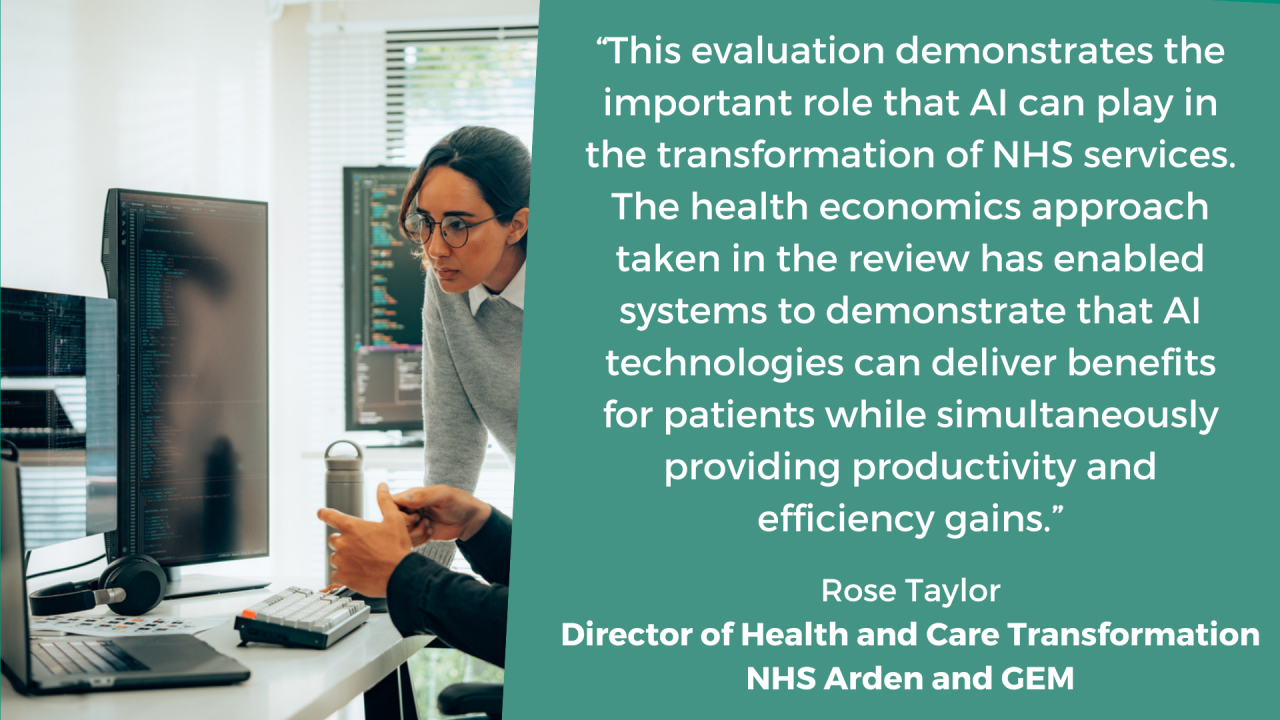An independent evaluation report highlights the significant contributions of the NHS Artificial Intelligence (AI) Lab, a pioneering initiative by the Department of Health and Social Care and NHS England.
The report, led by senior researchers from The University of Edinburgh and supported by NHS Arden & GEM’s Health and Care Transformation team, provides a comprehensive assessment of the AI Lab’s achievements and challenges, offering valuable insights for future AI opportunities.
Launched in 2019 with an initial investment of £143.5 million, the NHS AI Lab was established to accelerate the safe and effective adoption of AI in healthcare. Over the past five years, it has played a critical role in supporting the development, testing, and deployment of AI in health and care, as well as shaping regulatory frameworks. The evaluation explores the AI Lab’s contributions to AI policy, infrastructure, and real-world applications, ensuring the NHS remains at the forefront of AI-driven healthcare advancements.
Arden and Gem’s Director of Health and Care Transformation, Rose Taylor, said:
“This evaluation demonstrates the important role that AI can play in the transformation of NHS services. The health economics approach taken in the review has enabled systems to demonstrate that AI technologies can deliver benefits for patients while simultaneously providing productivity and efficiency gains.”
Key findings from the independent review, conducted between March and December 2024, include:
- Significant progress and learning: The AI Lab has advanced AI development and scaling in healthcare, generating valuable insights and lessons for future AI strategies.
- Return on investment: Early evidence indicates promising financial and patient care benefits, with AI-driven technologies yielding substantial cost savings and improved health outcomes. There is also early evidence of returns on investment for taxpayers.
- Challenges in scaling and adoption: Barriers to widespread AI implementation include procurement processes, integration with existing infrastructures, and the need for stronger alignment with NHS system needs.
- Long-term impact: While some benefits are already evident, the full value of the AI Lab’s work is expected to unfold over longer timeframes, requiring continued monitoring of emerging benefits and adoption processes.
For example, one AI project implemented a diagnostic tool in a non-elective care setting across regional NHS networks. This technology provided decision support tools that aided frontline clinicians in making time-critical treatment decisions, resulting in efficiencies in long-term care and patient outcomes, with a cost-saving estimate of over £44 million across a cohort of 150,000 patients.
Dom Cushnan, Director of AI, Imaging and Deployment at NHS England, added:
“The findings from this report will inform the ongoing development of AI strategies and approaches that can help the NHS to make the strategic shift from analogue to digital in health and care. Helping to shape a future where AI will enhance patient care, operational efficiency and overall healthcare outcomes.”

The report emphasizes the need for sustained national support, strategic leadership, and evidence-based decision-making to ensure AI’s full potential is realized in healthcare. It also underscores the importance of fostering positive collaboration between AI developers, policymakers, and frontline healthcare providers.
Image credit: iStock



















